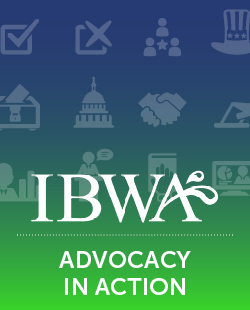The bottled water industry is demonstrating solid environmental leadership when it comes to water conservation and efficiency. Bottled water companies utilize and manage water resources in a responsible manner by doing the following:
-
- Investing in broadly accepted science and technology to improve water quality
-
- Strengthening water conservation practices.
According to the EPA, bottled water containers account for less than 1/3 of one percent of the waste stream. United States bottled water production accounts for less than 2/100 of a percent (0.02%) of the total groundwater withdrawn each year.
The industry is also working to bottle and dispose of packaged water products in ways that best serve the environment. According to the National Association of PET Container Resources (NAPCOR)’s latest bale analysis, bottled water containers are the most commonly recycled plastic container and are recycled at a rate of 31%.
The bottled water industry recognizes that recycle rates, although increasing, need to improve and the industry is actively working to build partnerships that will help increase recycling efforts.
The bottled water industry also uses minimal amounts of water to produce an important, healthy, and calorie-free consumer product—and does so with great efficiency. Even though it is a minimal groundwater user and is only one of among thousands of food, beverage and commercial water users, bottled water companies actively support comprehensive groundwater management policies that are science-based, multi-jurisdictional, treat all users equitably, and provide for future needs of this important resource.
Learn about industry groundwater practices
Learn about the environmental footprint
Learn about IBWA’s support of energy efficiency and ENERGY STAR efforts


